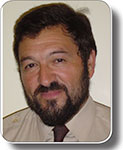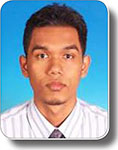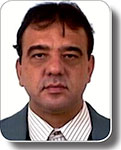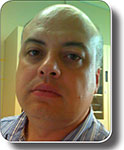Improved oil recovery by raw water injection using horizontal wells
Pavel Bedrikovetsky A , Mohammad Afiq ab Wahab A , Gladys Chang B , Antonio Luiz Serra de Souza C and Claudio Alves Furtado CA Australian School of Petroleum
B Schlumberger Australia
C Petrobras/Cenpes
The APPEA Journal 49(1) 453-462 https://doi.org/10.1071/AJ08029
Published: 2009
Abstract
Injectivity formation damage with water-flooding using sea/produced water has been widely reported in the North Sea, the Gulf of Mexico and the Campos Basin in Brazil. The damage is due to the capture of solid/liquid particles by the rock with consequent permeability decline; it is also due to the formation of a low permeable external filter cake.
Yet, moderate injectivity decline is not too damaging with long horizontal injectors where the initial injectivity is high. In this case, injection of raw or poorly treated water would save money on water treatment, which is not only cumbersome but also an expensive procedure in offshore projects.
In this paper we investigate the effects of injected water quality on waterflooding using horizontal wells. It was found that induced injectivity damage results in increased sweep efficiency. The explanation of the phenomenon is as follows: injectivity rate is distributed along a horizontal well non-uniformly; water advances faster from higher rate intervals resulting in early breakthrough; the retained particles plug mostly the high permeability channels and homogenise the injectivity profile along the well.
An analytical model for injectivity decline accounting for particle capture and a low permeable external filter cake formation has been implemented into the Eclipse 100 reservoir simulator. It is shown that sweep efficiency in a heterogeneous formation can increase by up to 5% after one pore volume injected, compared to clean water injection.

Pavel Bedrikovetsky is pro¬fessor of petroleum engineering at ASP. Pavel is an author of two books in reservoir engineering and 140 technical papers in international journals and SPE. His research covers formation damage, EOR and non-linear mathematical physics. He holds a MSc in applied mathematics, a PhD in fluid mechanics and a DSc in reservoir engineering from Moscow Oil-Gas University. From 1991–4 he was a visiting professor at Delft University of Technology and at Imperial Col¬lege of Science and Technology. Pavel served as section chairman, short course instructor, key speaker and steering committee member at several SPE Conferences and ATW. He is 2008–9 SPE Distinguished Lecturer. pavel@asp.adelaide.edu.au |

Mohammad Afiq ab Wahab is a reservoir engineer from Petronas (Malaysia’s national oil company). He has a BSc in petroleum engineering from the Australian School of Petroleum at the University of Adelaide. scorpio28_29@yahoo.com |

Gladys Chang is a reservoir engineer with Schlumberger Information Solutions (SIS) and provides technical support to various reservoir engineering software such as ECLIPSE, Petrel Reservoir Engineering, OilField Manager and Pipesim. Gladys graduated a BE (Petroleum) (hons) from the Australian School of Petroleum at the University of Adelaide. She also participates in projects involving the design and implementation of SIS software suite, which is customised to suit clients’ data and usage requirements. GChang2@adelaide.oilfield.slb.com |

Antonio Luiz Serra de Souza is a senior petroleum engineer and consultant at Petrobras Research Center (CENPES) in Rio de Janeiro, Brazil. He is the coordinator of the research program for geomechanical and water injection optimisation and has been working with reservoir engineering for over 25 years and with water injection and production for over 10 years. He previously worked at Petrobras headquarters in reservoir simulation and EOR and managed the reservoir simulation section of CENPES from 1989 to 1993. Antonio is author or co-author of several international papers, many of them from SPE conferences and journals. He holds a MS degree in mechanical engineering from Pontific Catholic University (PUC), Brazil and a PhD degree in petroleum engineering from Stanford University, USA. alserra@petrobras.com.br |

Claudio Alves Furtado is a chemical engineer. He graduated from the Federal University of Rio de Janeiro (UFRJ), did a postgraduate degree in petroleum engineering at Pontifical Catholic University of Rio de Janeiro (PUC-RJ), and a Masters degree in chemical engineering at UFRJ. Claudio has worked at the research center of Petrobras as a petroleum chemist since 2001 in water management group with emphasis at injectivity decline models and prediction, produced water reinjection and water injection surveillance besides the development of laboratory and on-field experimental coreflow tests to supply data for injectivity models. cfurtado@petrobras.com.br |


